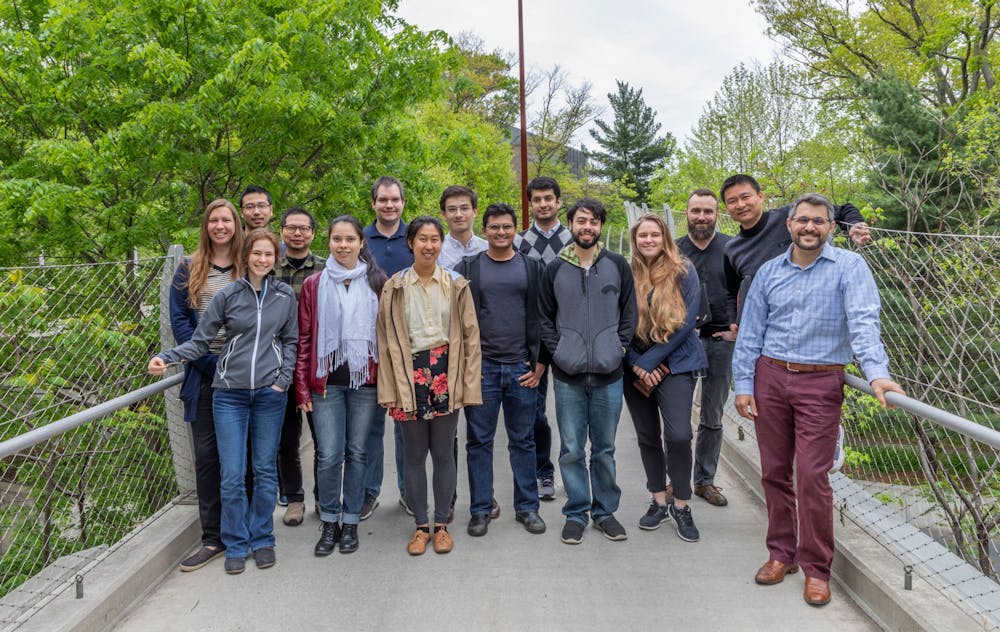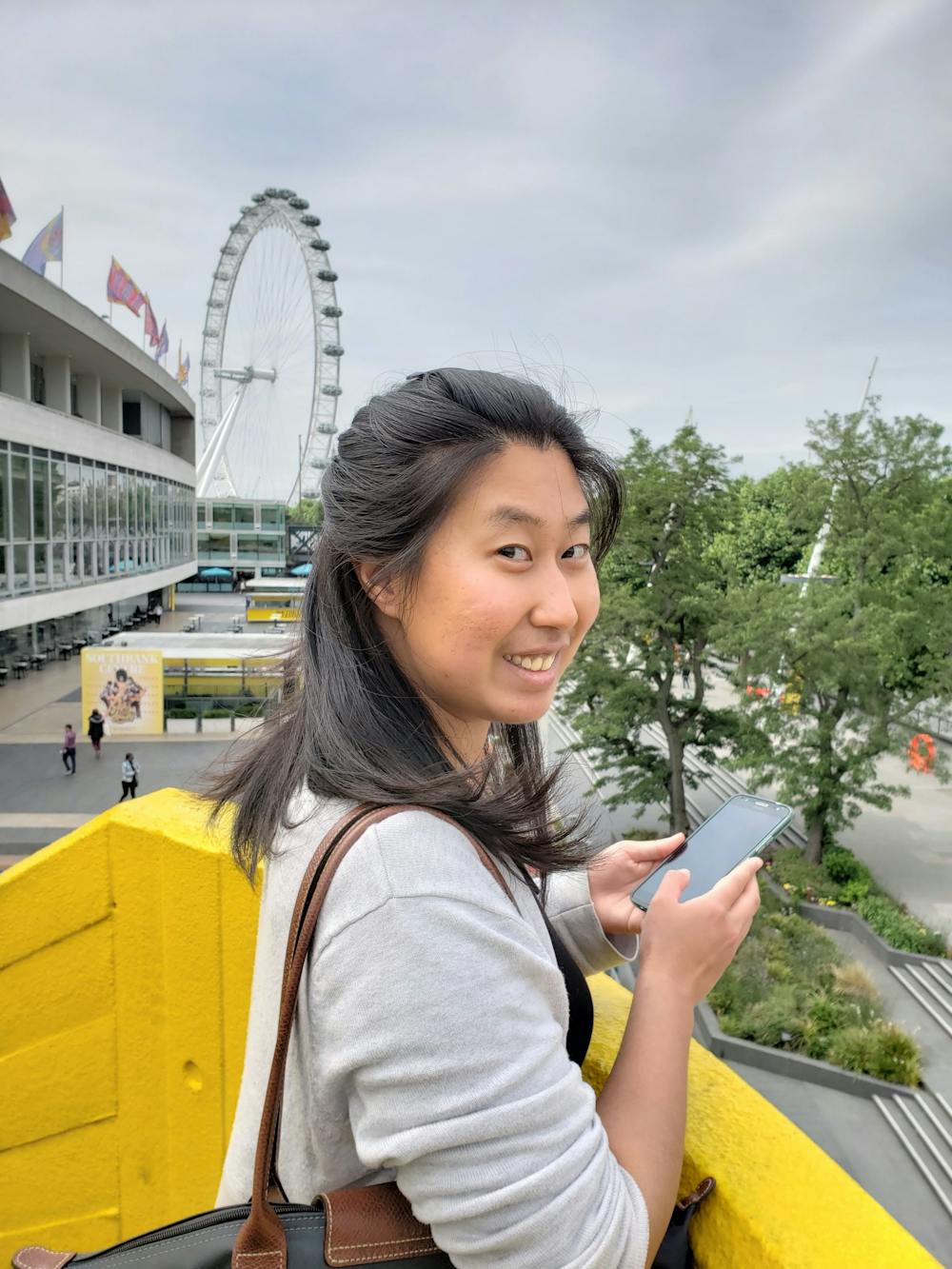Cassidy Yang, a graduate student studying within the Lewis-Sigler Institute for Integrative Genomics, died in a car crash in Ohio on Dec. 5. She was 26.
Her sister, 29-year-old Angel Yang, also died in the collision. The sisters were driving home to Illinois from New York.
A fifth-year graduate student in the Quantitative and Computational Biology (QCB) program, Yang expected to complete her dissertation in May 2021 under physics professor Joshua Shaevitz, who directs the QCB graduate program. Shaevitz described Yang as a scientist and lab member with a strong determination to push through the difficulties she confronted.
“Cassidy was just super hard-headed in the best way about making things work, never backing down from the challenges that science throws at her,” Shaevitz told The Daily Princetonian. “And as a lab member, a friend, and a mentor to many people, her compassion and desire to make sure that everybody felt involved and engaged were her defining characteristic.”
“She was sort of the lifeblood of the lab,” Shaevitz remarked.
Yang’s research primarily focused on the three-dimensional evolution of large droplets of Myxococcus xanthus, a species of soil bacteria capable of self-organizing into biofilm structures.
“She had developed this whole suite of tools to use the 3-D imaging technology,” Shaevitz explained. “She would analyze the 3-D images and she was working on the theory of active fluids to understand the shape of the droplets of bacteria.”
Yang was also heavily involved in forming a cohesive social structure within the QCB program, which has a unique makeup with faculty members and research groups spread across many University departments. Shaevitz said she was instrumental in bringing together people in the program who would have otherwise rarely communicated with each other in person.


Yang was born in Halifax, Nova Scotia, Canada, as the youngest of two daughters of immigrants from mainland China. Her mother, Jie Yao, is a telecommunications engineer, while her father, Zhongjin Yang, is a retired physicist who received a Ph.D. from the University of Oslo. Yang moved with her family to the U.S. when she was two months old and grew up in Naperville, Ill., a suburb of Chicago.

In a message shared with the ‘Prince,’ Yang’s parents wrote that “Cassidy was deeply kind, generous, and selfless in a way that was truly special.”
“She was a lovely and happy baby right from the start, and she grew into a lovely, caring, and dependable child, loved by her friends and family alike,” they continued. “Cassidy was passionate about her research and about using science to improve the world around her. Her life was short but brilliant. We, her parents, are so very proud of her.”
A stellar student of math and science, Yang spent the summer before her senior year of high school as a research assistant at Michigan State University and co-captained the math team and the junior engineering technical society at Naperville Central High School, from which she graduated in 2012.
Yang went on to attend The California Institute of Technology (Caltech), spending three consecutive summers as an undergraduate research assistant before graduating with a double major in physics and business economics and management in 2016. The fall after her graduation, Yang joined the QCB program at the University as a Ph.D. student.
Diana Valverde Mendez GS, a member of the Shaevitz research group, described Yang as having a very welcoming personality while driving the research group’s productivity.
“She was the one who kept our lab running. She was extremely kind, always wanting to make things better for people and make people feel welcomed,” Valverde Mendez remarked. “But she was also the person who got things done. She was always reminding us to do our lab jobs and planning social activities for the lab.”
Valverde Mendez also recalled that Yang, who deeply enjoyed board games and maintained a garden, would often invite her friends to play board games together and have lunch in the garden. Yang also was a lover of baking and brought her baked goods to share with everyone at work.
Grace McKenzie-Smith GS, who is also a member of the Shaevitz research group, echoed Valverde Mendez’s words, describing Yang as amazing at creating community and emphasizing Yang’s perseverance and reliability.
“If something needed to be done, Cassidy would either do it herself or made sure someone else got it done. She was very on the ball,” McKenzie-Smith said. “I know that there were certainly times when she would find herself frustrated in her research, which happens for all of us, but she would try really hard to make it better, not only for herself, but for the people around her.”
McKenzie-Smith remarked that as someone who enjoyed creating and being a part of communities, Yang found the COVID-19 lockdown to be difficult, and proceeded to create a virtual community for her research group on Gather.town, a video-calling space that simulates in-person interaction.
At the University, Yang served as outreach coordinator for the Graduate Women in Science and Engineering (GWiSE) group for two years and assisted the Undergraduate Women in Physics program. She also served as a Princeton Access, Diversity, and Inclusion Outreach Ambassador; worked as a volunteer scientist for the National Science Policy Network, answering public questions about COVID-19; and served as a volunteer tutor with the newly-created Princeton Online Tutoring Network.
Friends of Yang and her family have set up a GoFundMe fundraiser to raise funds for the funerals of Cassidy and Angel Yang. Remaining funds will be used to establish the Angel and Cassidy Foundation, which will support the scientific achievement of girls and young women.
At the time of publication, over 2,200 donors have raised nearly $220,000 through the fund.








